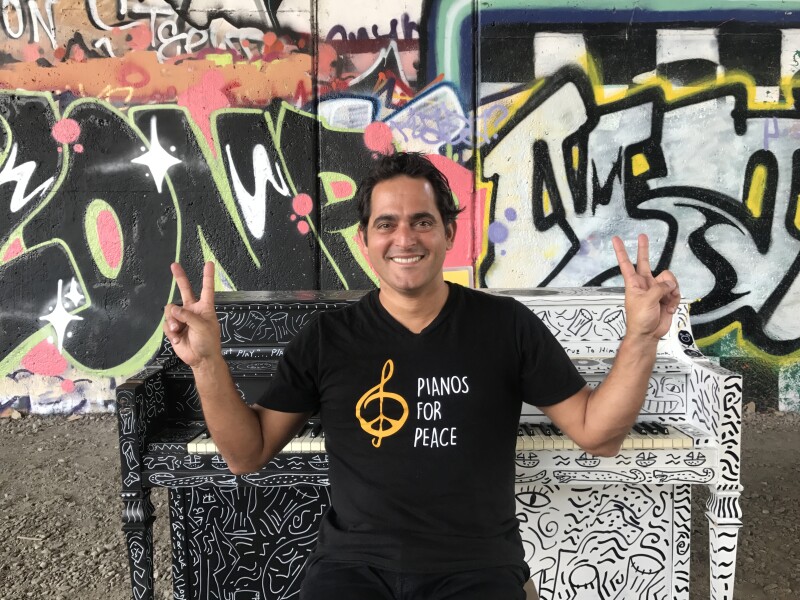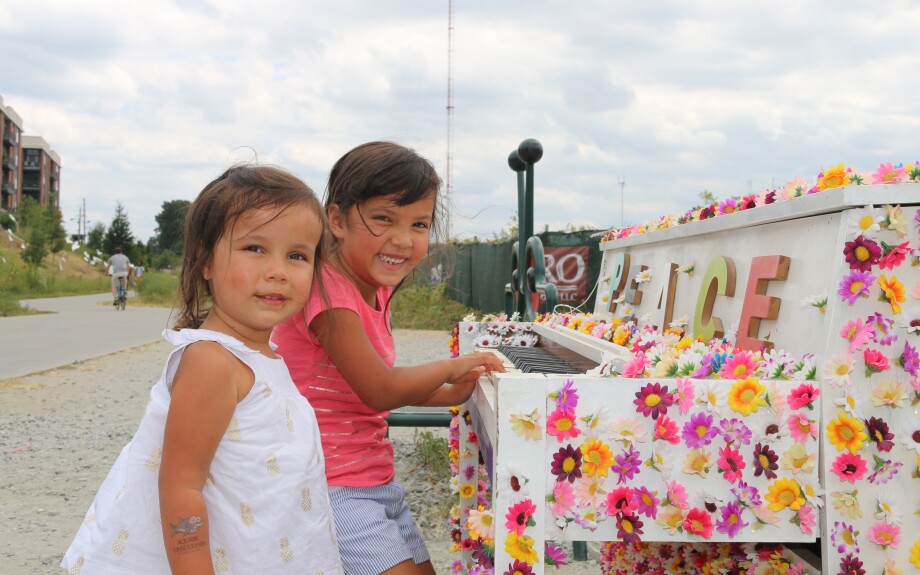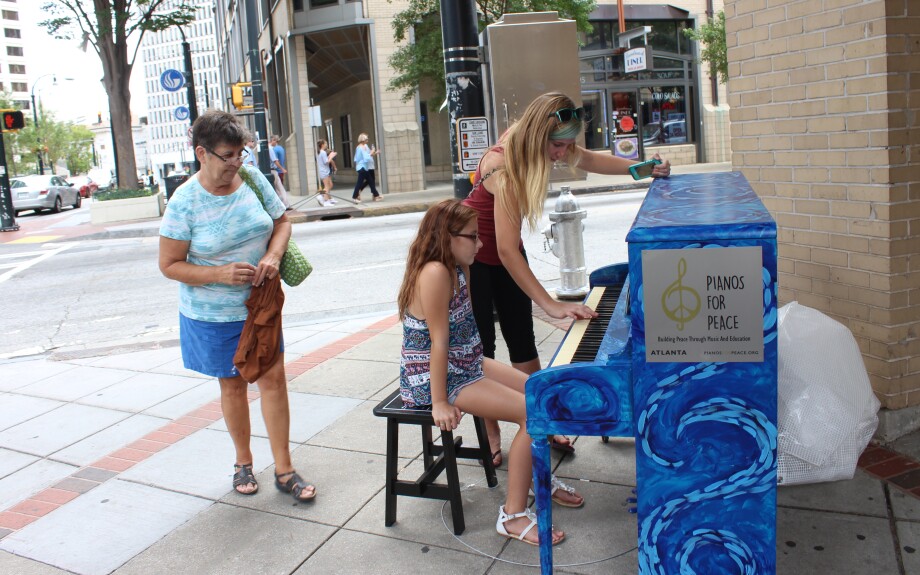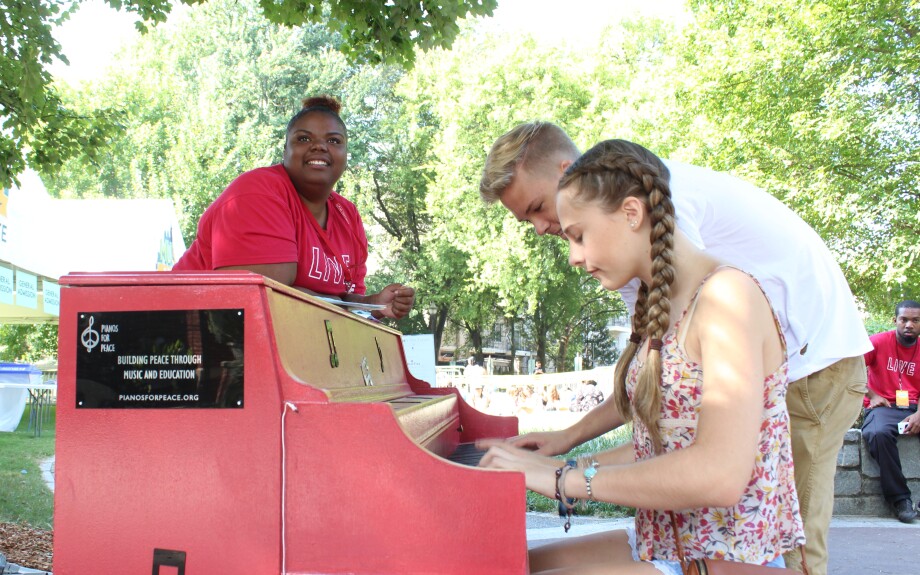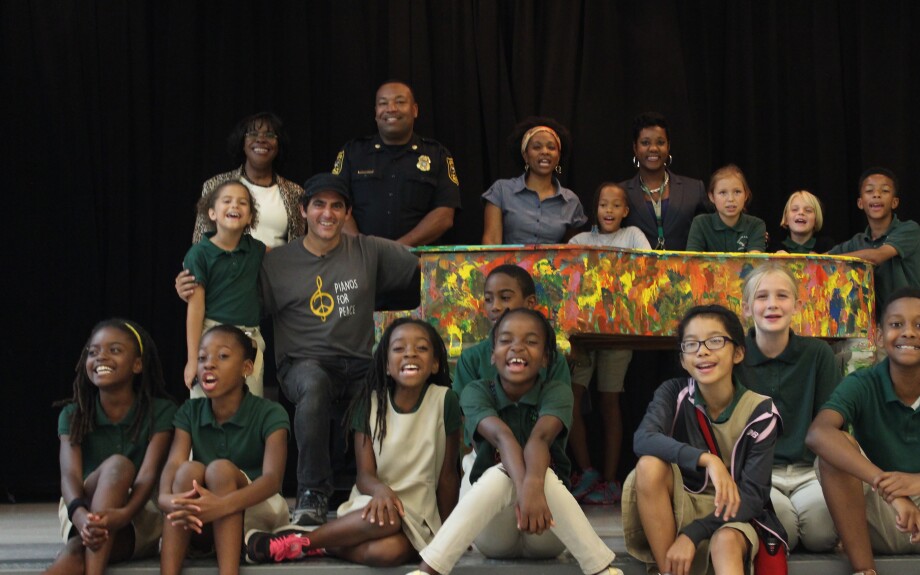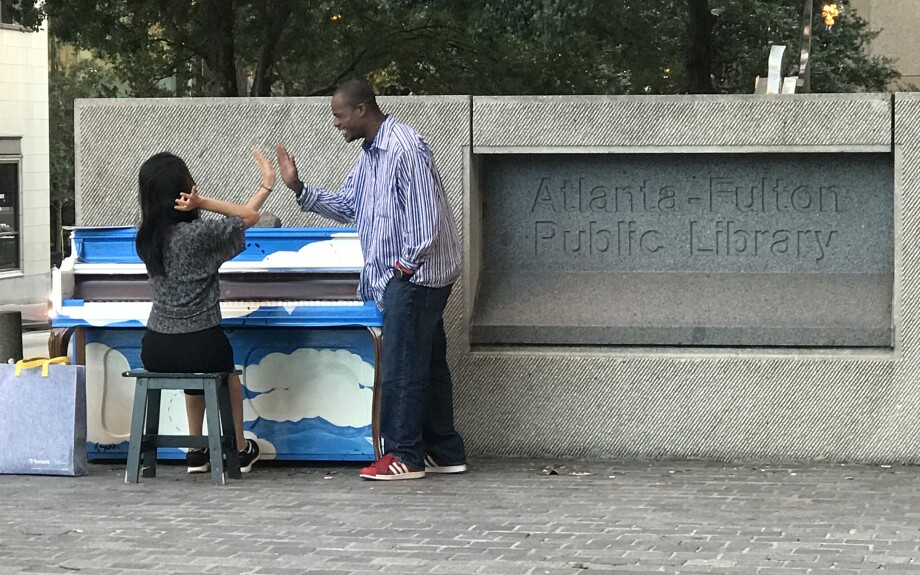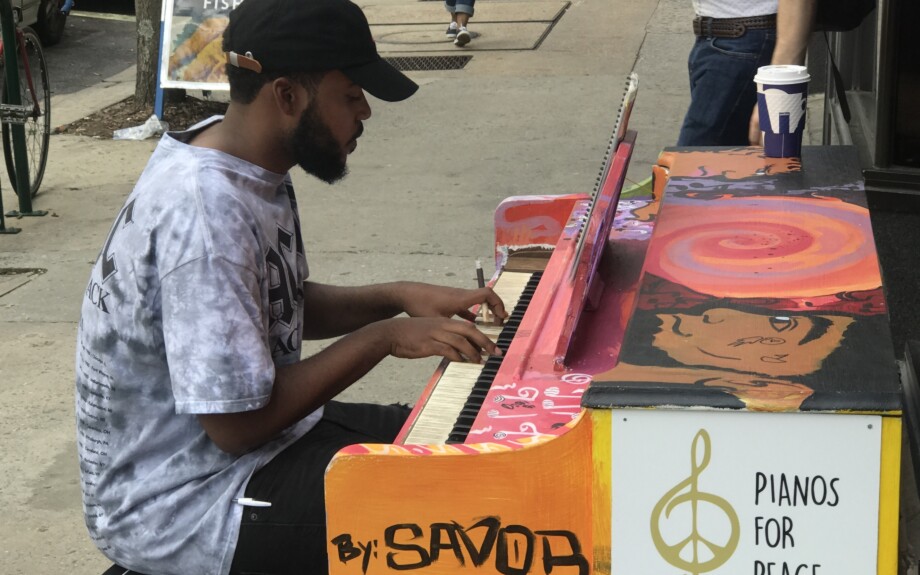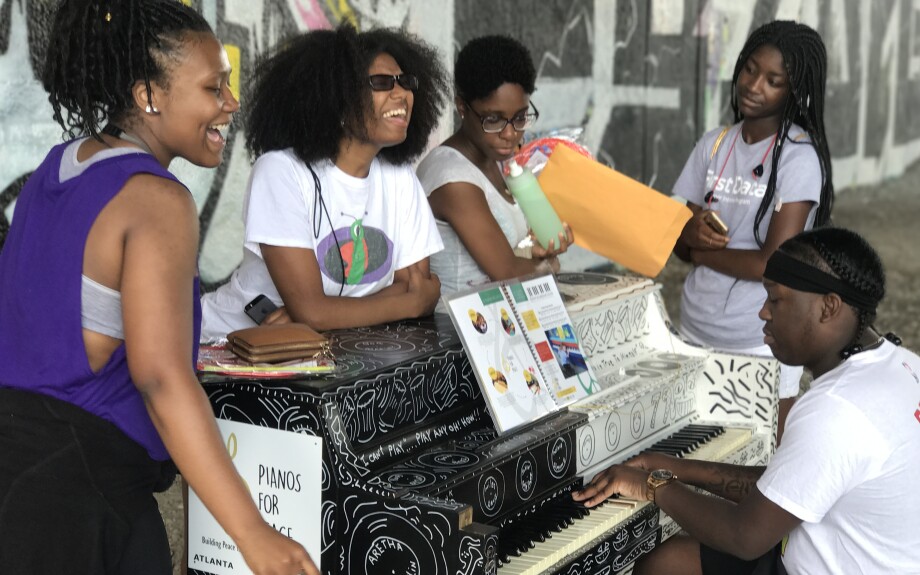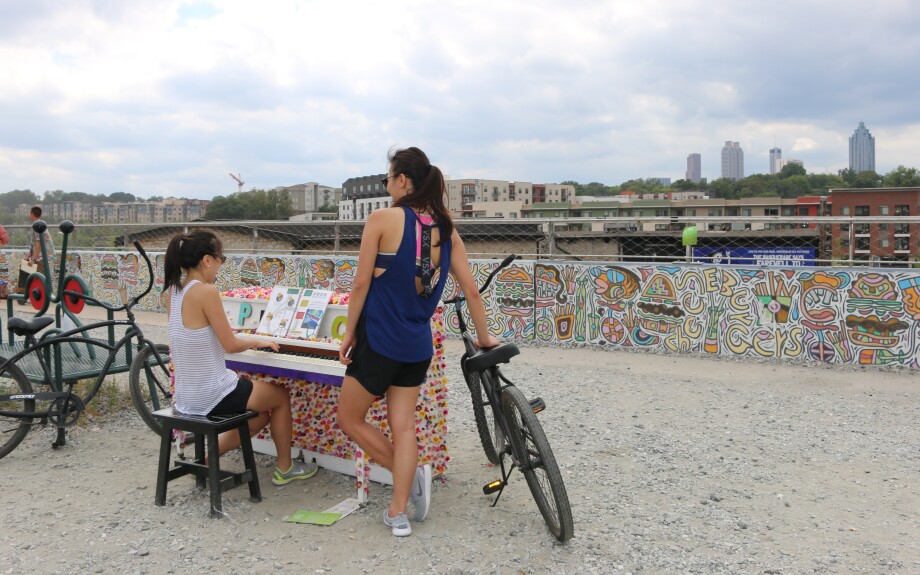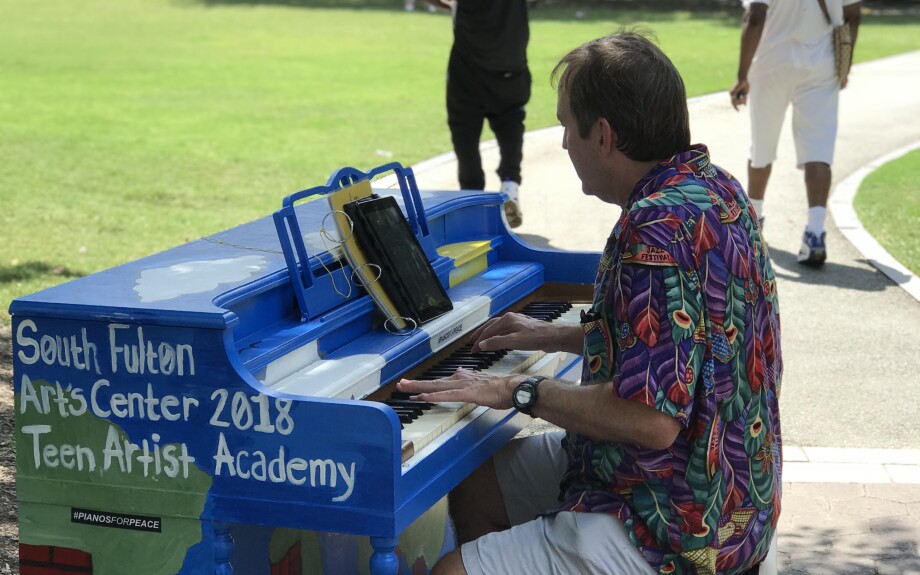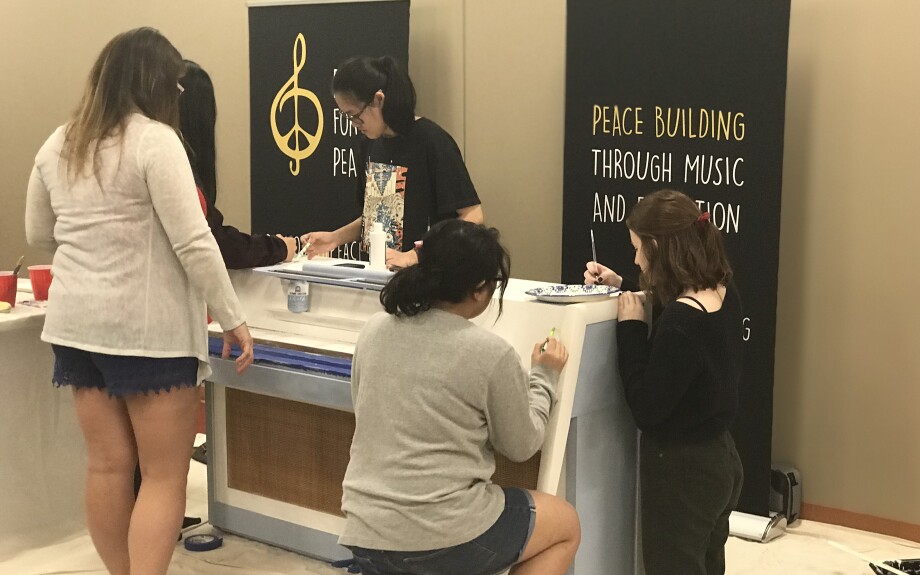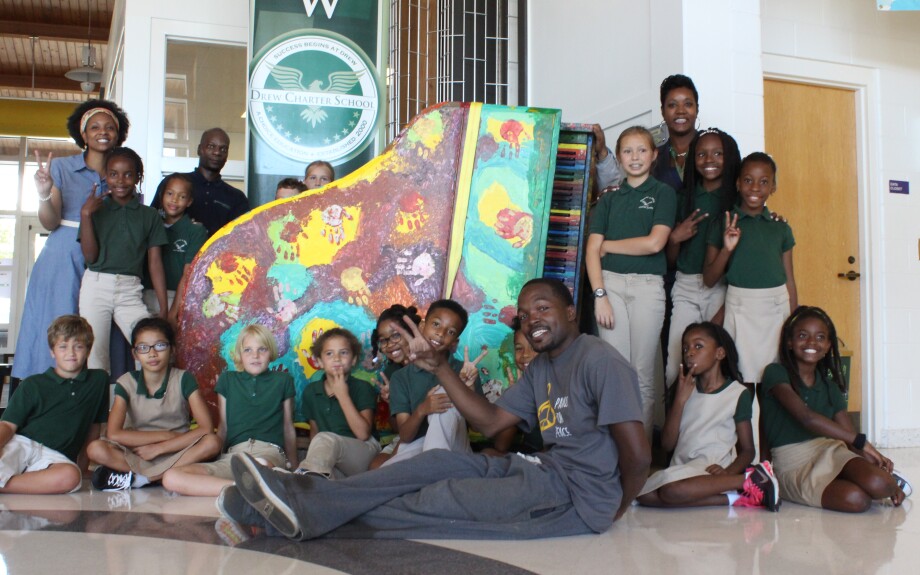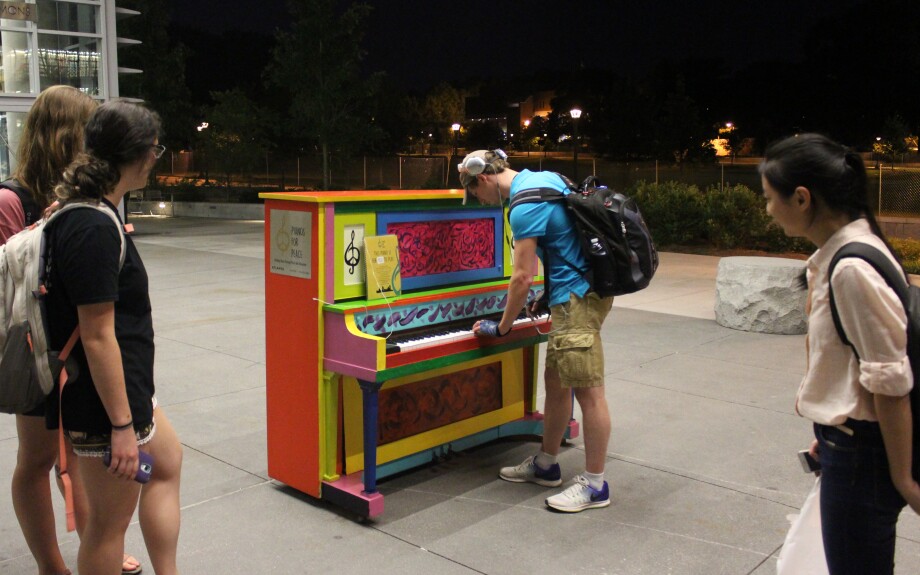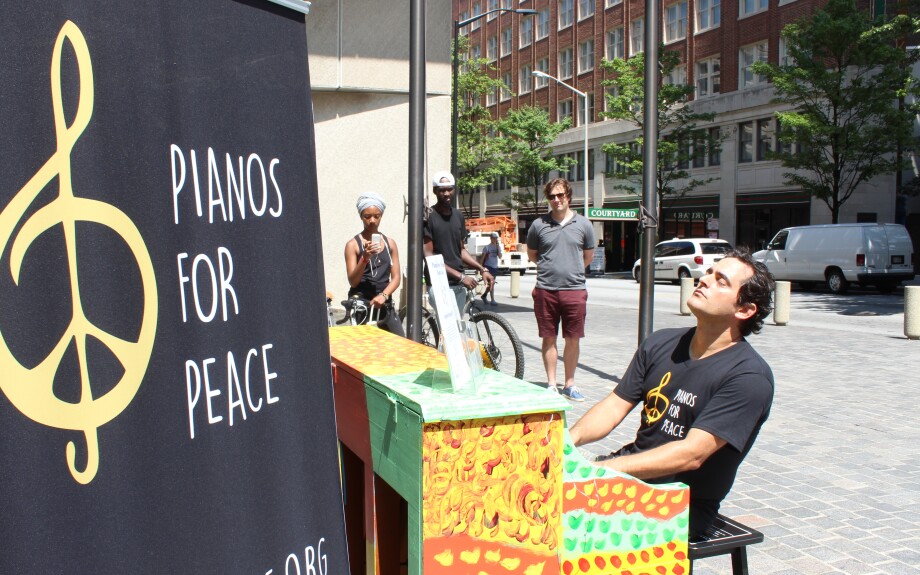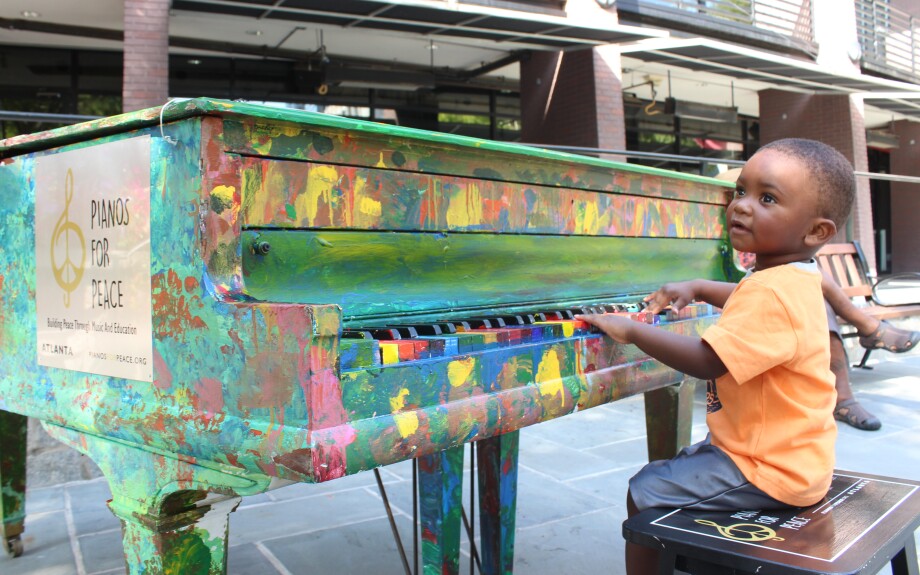In the throes of World War II, piano makers Steinway & Sons parachuted nearly 3,000 of its beloved instruments to American armed forces stationed abroad. Soldiers would gather around the specially designed upright pianos—known as “Victory Verticals—to play and sing tunes that reminded them of home. The shared musical experiences helped instill a sense of unity among the young servicemen, while lifting their spirits and creating moments of peace during wartime.
Malek Jandali shares this historical anecdote from the domestic terminal of Atlanta’s Hartsfield-Jackson International Airport, where his nonprofit, Pianos for Peace, has just installed a baby grand for travelers to play and enjoy before heading to their gates.
“I think it says a lot about the soft power of music and art,” the lauded Syrian-American pianist and composer tells me via phone over the din of hurried passengers making their way through the world’s busiest airport. “In just the last few minutes, six people—including, coincidentally, a U.S. soldier—have played this piano.”
As we talk, he uses his free hand to tap out the melody of “Twinkle, Twinkle, Little Star.” The lullaby may seem a bit elementary for an artist of Jandali’s renown, but entirely appropriate given the unifying mission of the organization he founded four years ago.
“We strive to transform lives and communities by making the arts accessible to all,” he says. “Our mission is to build peace through music and education.”
Jandali’s international travels inspired him to bring the Pianos for Peace concept to life in his hometown of Atlanta.
“I saw beautiful public art everywhere from New York to Paris to Moscow,” he recalls. “But I realized public art doesn’t usually engage the public. I knew I wanted to place beautifully painted pianos out in the streets to connect, inspire and, yes, engage people. After all, ‘unity’ is part of the word ‘community’ and, as an American artist, it’s my duty to give back to the community.”
Making a (Baby) Grand Community Overture
On Sept. 1, 88 colorfully painted pianos will pop up in Atlanta’s parks, transit stations, libraries, college campuses and other high-traffic public spaces as part of the three-week Pianos for Peace Festival. These Instagram-worthy instruments will be played and enjoyed by an estimated half-million residents and visitors—everywhere from in-town hot spots like Piedmont Park and the Atlanta BeltLine, to cultural landmarks like the National Center for Civil and Human Rights—before finding forever homes in underserved schools, nursing homes, healthcare facilities and community centers.
The Fulton County Arts & Culture Council taps volunteer artists to hand-paint the pianos with their own unique expressions of peace. The instruments are designed to catch both eyes and ears with a refreshingly unexpected spectacle—brightly decorated pianos in free, outdoor spaces—and to be touched, played, photographed and shared.
“People are not just passing by these pianos ... they’re meant to be experienced,” says Jandali, a noted philanthropist who received the 2014 Global Music Humanitarian Award for his advocacy for peace and human rights. “We want to invite people to sit down and play a tune, start conversations and, ultimately, make memories.”
Importantly, Pianos for Peace “completes the circle” by bringing the beautiful instruments to organizations in need at the end of the festival. The pianos are used as part of year-round music therapy sessions, school music programs and more.
“Many people think they disappear after a few weeks,” Jandali says. “But they don’t … they go places where they can have an even greater impact.”
Orchestrating Positive Change
The gradual decline of arts education, especially in elementary schools, was a key driver of Pianos for Peace, Jandali says, noting that students in underserved communities who are highly engaged in the arts are more likely than their peers without access to arts education to find good jobs, finish college and volunteer in their communities.
Pianos for Peace relies on support from individuals and organizations to donate and purchase pianos and cover storage, transportation and tuning costs. Each piano is moved four to five times—from the donor, to the Pianos for Peace warehouse, to a public space, to a school—and has to be tuned each time.
“Because they can’t be out of tune when Usher or Elton John decides to sit down and play,” Jandali says with a laugh, name-checking two of Atlanta’s myriad musical celebrities.
"This is an open invitation for everyone to join our symphony for peace,” he concludes. “The word ‘symphony’ means ‘to sing together,’ and that’s what we hope to witness this year: the largest symphony for peace our city has ever seen."
Encore Performance
The Pianos for Peace festival, now in its third year, remains one of Atlanta’s largest public art display projects. But the impact the nonprofit has on this community extends far beyond the beloved two-week celebration. Thanks to Jandali’s passion for spreading his definition of PEACE (Philanthropy, Education Initiatives, Artistic Innovation, Community Outreach and Empowering People), the organization’s philanthropic mission shows no signs of slowing down.
Already, their performing arts program has offered talented but disadvantaged youth opportunities to learn new musical skills and make meaningful contributions throughout their communities. What’s more, they continue to elevate the “art of healing, one peace at a time” by supporting humanitarian projects that incorporate music therapy into the treatment of children with medical or emotional trauma, humanitarian aid workers, military personnel, refugees, and others in need.
“All I have is music,” Jandali notes in this inspiring profile. “And my mission is very simple: It’s to spread peace and unite people.”
“The only way to spread peace in the world is to join our symphony of humanity. I truly believe that music can change people, and people can change the world.”
Bravo, indeed.
